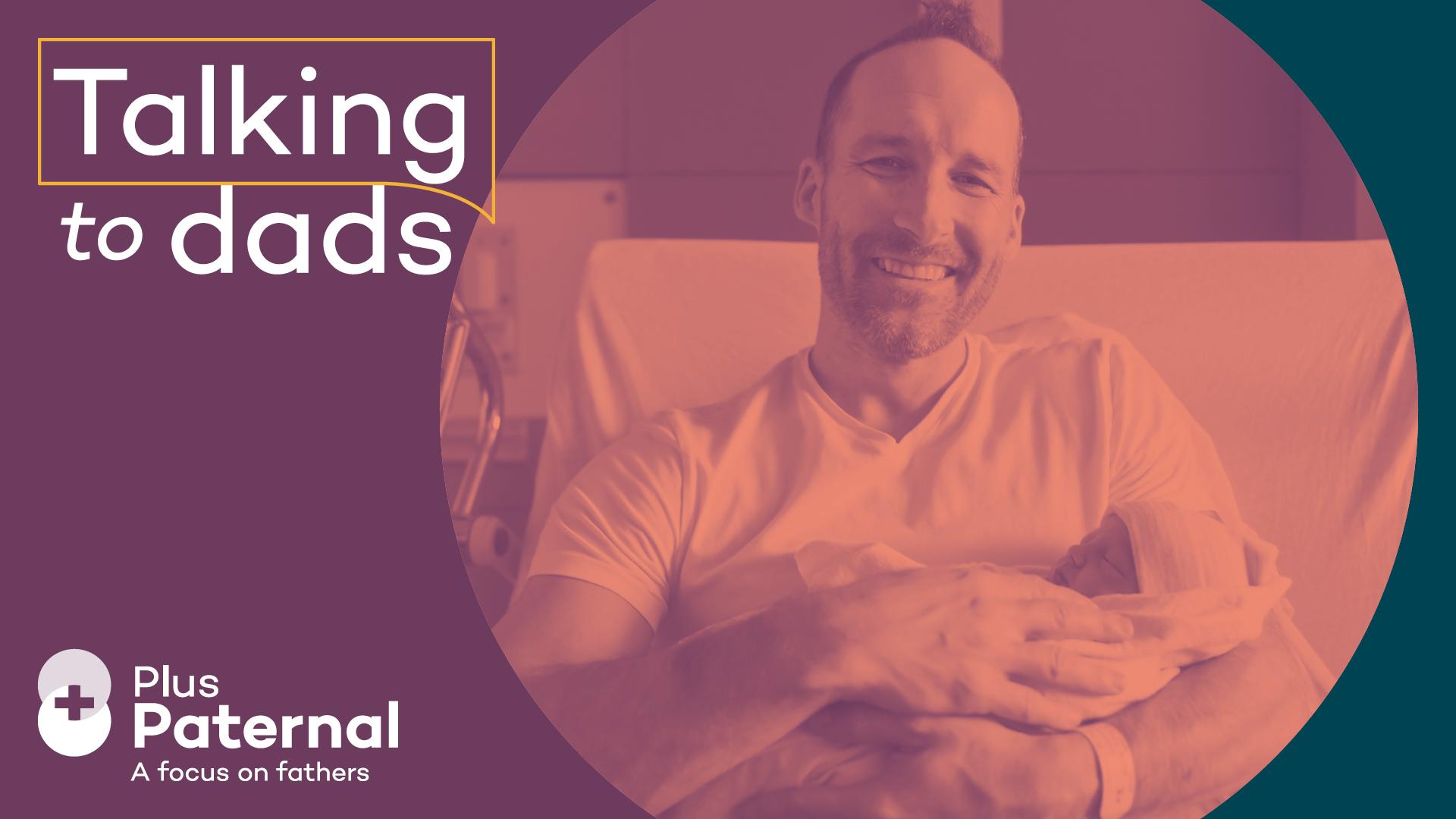What is Plus Paternal?
Healthy Male embarked on the Plus Paternal: A focus on fathers project in response to the National Men’s Health Strategy 2020-2030’s call for a more inclusive approach to parenthood, and expansion of the maternal and child health infrastructure to be more inclusive of fathers.
This project aims to improve the health of men and their families by increasing the engagement and support of men from preconception to early parenthood.
Our findings have been documented in a Case for Change (more on that to come).
Why was Plus Paternal needed?
Australian society, and our health system, have not kept pace with the changing needs, expectations, roles, and diversity of modern-day families.
Non-birthing parents, most commonly men, are not systematically engaged or supported from preconception to parenthood.
They are often treated as secondary to fertility, birthing, and parenting processes — welcome but not active partners. Many do not receive the care they need if they are unable to conceive, if they lose a child or if they are struggling with parenthood.
Opportunities to prepare them for this major life transition are lost. This negatively impacts the health and well-being of all family members, as well as relationships within families.
“Men aren’t seen as having a place within healthcare in terms of fatherhood,” .
– Simon von Saldern, Healthy Male CEO
“Parenthood has very much been the mother’s job in the past … back in the day, the father would be in the pub having a smoke waiting for a phone call.
The system’s structure said, ‘we don’t want you here’. But times have changed, fathers want to be included, and the health system hasn’t adapted to include them.
“The research we assessed showed how underserviced fathers are and how much good there could be if we could do it properly.
“There’s a recognition at an allied and health professional level that things need to be better, that you can achieve a lot by having fathers recognised and included.”
Who is Plus Paternal for?
Basically, anyone in the healthcare system who may, or should, deal with fathers and men who are about to become dads.
“It gives anyone working in this space suggestions and structure. They can use Plus Paternal strategically when planning, or to understand the processes they need to put in place, correct language to use and so forth,”
– Simon von Saldern, Healthy Male CEO
What is Plus Paternal: A Case for Change?
How were these resources developed?
Healthy Male worked with, and alongside, a wide range of organisations to help ensure the health, well-being and inclusion of fathers becomes a key feature of our health system and beyond.
Along the way, we also wanted to stress that efforts to acknowledge, engage and support men should not detract from, nor compete with, women’s health initiatives.
Healthy Male is continuing to work with governments, organisations, and the community to increase the focus on fathers — a change that will have flow-on benefits for the whole family.
Plus Paternal: Talking to Dads
Some fathers feel a bit left out during the pregnancy journey, and some may even read their exclusion as a sign they are not an equally important parent.
This could affect their engagement as parents and their connections with their children, and may discourage them from seeking support if they are struggling.
Messages can also reinforce traditional gendered stereotypes that may influence roles within families.
Because of this, it was evident that something that could help needed to be developed – hence the Plus Paternal: Talking to Dads Language Guide.
Plus Paternal: Talking to Dads provides health professionals with practical tips for improving their communication with fathers and other non-birthing parents, whether they’re new to working with families or have been doing so for a long time.
Our evidence-informed recommendations are based on well-established theories about communication, family systems, attachment and gendered stereotypes and norms.
As the language guide states: “health professionals are uniquely placed to inspire fathers and other non-birthing parents to be engaged, confident, committed and equal parents.
“As the health system evolves from a ‘mother-focused’ to a more ‘family-centred’ approach, we all need to reflect on how we can create more inclusive experiences and environments for all parents.
“These suggestions for communicating with fathers across the perinatal period may appear obvious, or only subtly different to how you would communicate with mothers.
“However, small changes can make a significant difference to the way each parent engages, learns, and views themselves, and to how they make informed choices about parenting or help-seeking.
“The words you choose, the messages you give and the environments you create leave a lasting impact on all parents – mums, dads, and partners.”
What is the Talking to Dads eLearning resource?
This self-paced eLearning activity will provide practical tips for improving healthcare professionals’ communication with fathers and other non-birthing parents.
It provides evidence-informed recommendations and is based on well-established theories about communication, family systems, attachment and gendered stereotypes and norms.
Check it out at our Professional Education page.
Who is the Plus Paternal Network?
The Plus Paternal Network is a collective of organisations and individuals who have formally endorsed the seven goals of the Case for Change, including the Australian Association of Psychologists, the Australian Fatherhood Research Consortium, Dad’s Group, PANDA, National Rural Health Alliance and Red Nose.
You can check out the organisations and individuals which make up the Plus Paternal Network here (you can also register your or your organisation’s support there).
How can you find out more?

Related Articles

Family Systems Theory
Read article
How Attachment Theory helps to guide talking to dads
Read article
Talking to Dads: overcoming the restrictions of gender norms
Read article
How to better engage fathers in their children’s care
Read article











